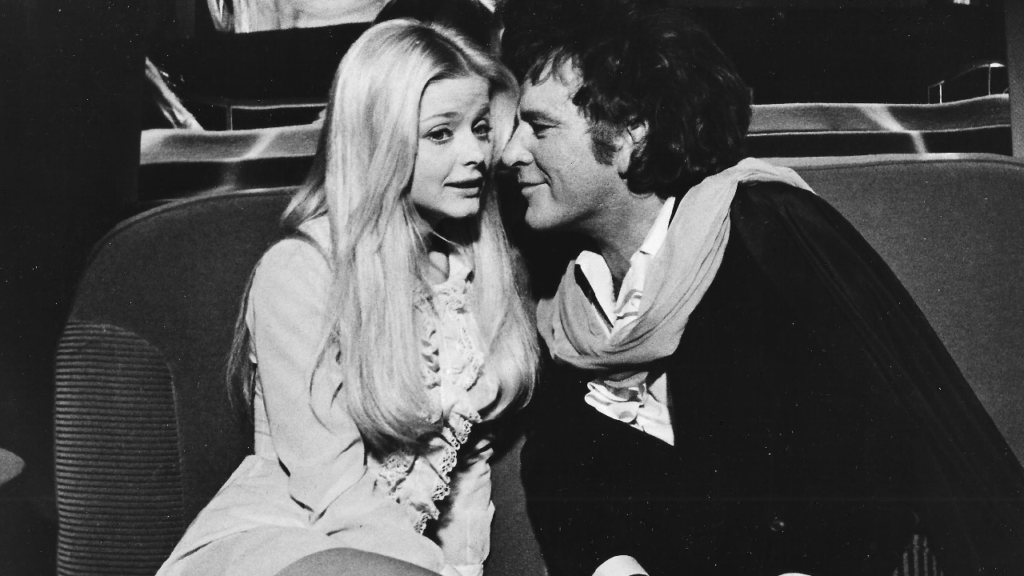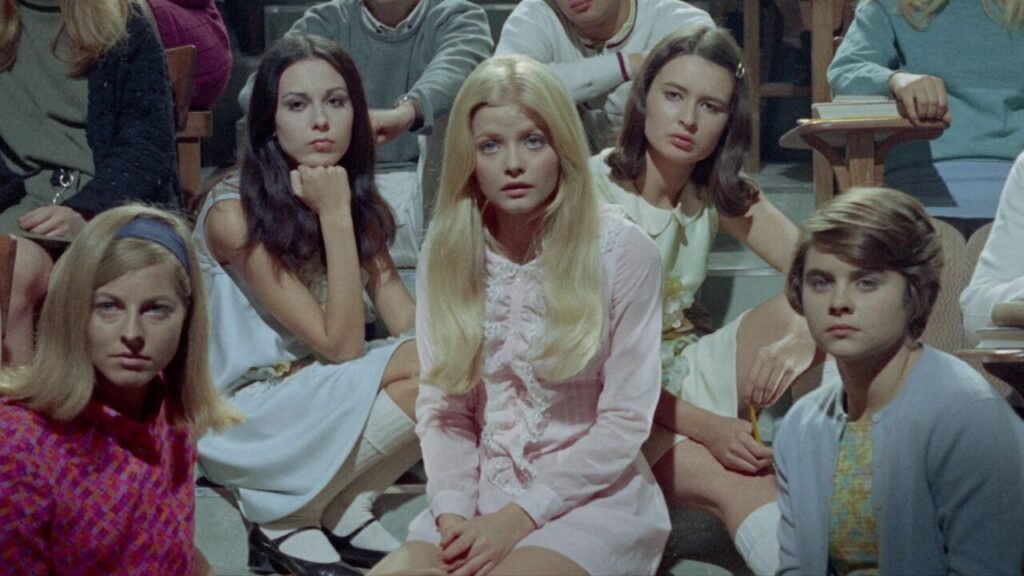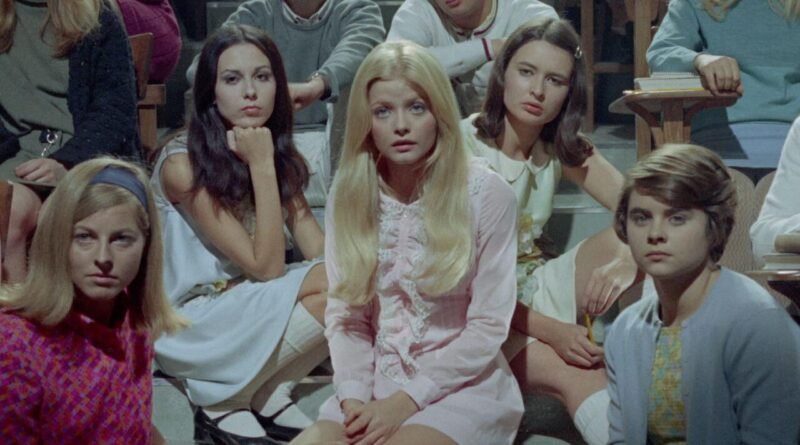Hidden Gems: Candy (1968)

Candy, 1968 (Richard Burton/James Coburn/Marlon Brando)
“In my book you are a tart! A tramp! A trollop! A… teenager.”
Jeez, I think Candy went right over my head. This is Terry Southern’s ultimate black death trip. Southern once spoke of an interview, for which he was commissioned by Rolling Stone, with Stanley Kubrick. They talked about death, and Southern called it a “groovy rap.” Kubrick kicked himself for never having the courage to make an adult movie, like “XXX”-adult. Mike Nichols once saw Deep Throat at a cinema and proclaimed it the future of filmmaking.
Those were very different times. I don’t think I’m ready for Candy, or maybe I was ready thirty years ago, and I waited too long. Southern was 44 years old when Buck Henry adapted the book (which Southern co-wrote with Mason Hoffenberg ten years earlier) for director Christian Marquand. The book was published for Maurice Girodias’ Olympia Press, The authors were paid a flat $500 fee for French publication.

When Candy (a play on Candide) came to the States, it caused a scandal. The book was banned almost immediately. All Southern wanted was some quick gratification by teasing the idea of a pornographic parody. Candy is a “send-up” of dirty books, but reviewers and authorities saw it differently, and that was when Southern came to the conclusion that even a parody of pornography is still pornography.
Southern became a cause célèbre, and his hand passed over a good deal of cutting-edge content of the ’60s including Dr. Strangelove, The Loved One for Tony Richardson, The Cincinnati Kid for Sam Peckinpah, Barbarella, Easy Rider, and an adaptation of his book, The Magic Christian. Southern would return to the genre in 1970 with Blue Movie, a hyper satire about a respected filmmaker who decides to make a pornographic film.
While Candy mocks the sexual revolution, the movie mocks everything, from God to government, celebrity and science, death and the origin of man. There’s too much happening to be contained in a two-hour movie. The all-star cast is insane, from Richard Burton’s oversexed poet, Ringo Starr’s oversexed Mexican gardener, Emmanuel, and Candy’s oversexed father and identical twin brother, T.M. and Jack Christian played by John Astin. Also putting in appearances are Walter Matthau, James Coburn, John Huston, and Marlon Brando (hilarious as a sex guru later in the movie).

The reason these men are oversexed is because of Candy Christian (Ewa Aulin). This blonde bombshell with an unsettlingly angelic face drives these men (and many others) crazy. There are some definite Lolita vibes, but not quite. Lolita was a 12-year-old girl who brought out the worst in dirty old men. Candy is a college student, but Aulin plays her like a little girl, and she’s no Sue Lyon.

She looks a great deal like Chloë Grace Moretz, but she speaks in a constant, maddening overdubbed “baby” voice. It’s okay. I don’t think any of this is meant to be taken seriously, even as Candy is raped repeatedly throughout the movie. The movie plays like a nonstop orgy with very little in the way of a story. It’s a series of episodes (in which men repeatedly take advantage of a rather vacuous young lady who is blamed for the actions of those men) that might amuse a reader, but the movie does not amuse; it merely titillates and teases.
Candy is introduced as having traveled through the cosmos to land on Earth to apparently tempt men and drive them mad. What about women? How do they escape unscathed and instead only broadcast their disapproval of Candy and her weird ways? Candy succeeds (and fails) as an adult movie. The movie was given an “X” rating (for tone, I suspect), but it did surprisingly well, considering its avant-garde sensibility, at the box office.
Candy is a visually striking film. It was a fascinating period in filmmaking. Russ Meyer was making inroads into mainstream success. Rafelson made Head, the iconoclastic execution of the Monkees and their public image. Roger Corman directed The Trip. Gore Vidal’s Myra Breckenridge had just been published and optioned for 20th Century Fox, but none of that matters.

My initial instincts were correct. I wasn’t ready for Candy. Either something that wasn’t pornography, or something that completely was would be superior to Candy as it stands because either option would have the courage to tell a story rather than just a series of bizarre episodes designed to humiliate the titular character. Candy goes from one ridiculous situation to another. She is assaulted by Burton at college. She is assaulted by Ringo Starr.
She is assaulted by Matthau on a paratrooper plane. She is assaulted by James Coburn (and her uncle) in a hospital. She is assaulted by a hunchbacked man who can climb walls and ceilings, and so it goes. What’s the point of all of this? The movie’s end loops everything we’ve seen before. She becomes pure energy and travels back into the cosmos. Uh, okay. This is how you end a movie when you have no ending. This is how you end a movie review as well. Candy-O, I need you so!

